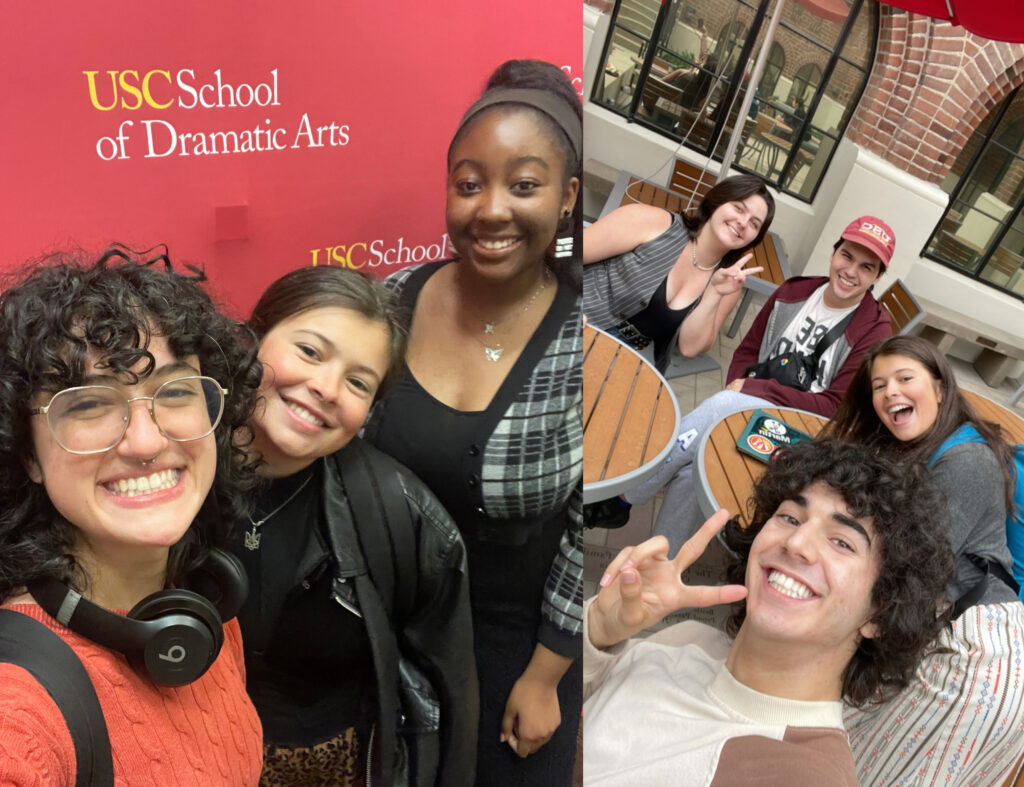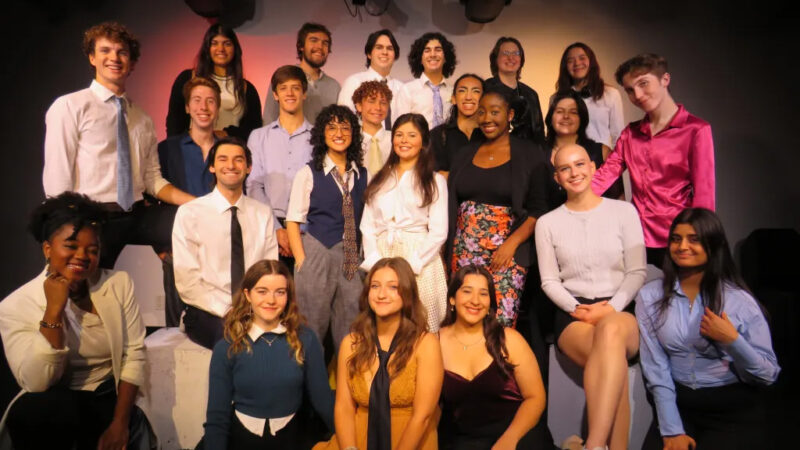Students at the USC School of Dramatic Arts (SDA) use their voices to inspire, push boundaries, connect with audiences and challenge the status quo on stages, screens and in classrooms—but when it comes to advocating for change, one organization has served as the collective voice for dramatic arts students at USC for years. The Theatre Students Association (TSA) is a student advocacy group that acts as a conduit between the students of SDA and the administration and faculty, pushing for positive changes and giving shape to student sentiment.
“Our goal is to help uplift student voices and student needs, and to communicate with faculty about… how we can improve student lives,” said TSA president Isadora Swann (BA Theatre, Emphasis in Acting ’25). “We’re really an advocacy organization that works together with faculty on all sorts of projects.”
Those projects have a range as diverse as the student body itself: with more than 20 students on the board, TSA is one of the largest theatre-related student organizations on campus. Divided into subcommittees, TSA tackles issues ranging from providing resources for independent student productions (ISPs) to examining equity in casting to organizing student events and professional development opportunities. TSA leadership frequently meets with the Dean’s office, and the group’s initiatives consistently focus on enhancing student experiences and addressing the unique needs of dramatic arts students.
According to Swann, representing the needs of SDA students at USC is important because their lives and needs can be vastly different from students in other majors.
“What the day in the life of an art student looks like, and the accessibility needs that arise in the kinds of classes and work that we do here in SDA, looks very different than, for example, a chemistry major,” explained Swann.
One major project for TSA leadership this year has been providing resources for independent student productions (ISPs) in new spaces. Though each student organization has a faculty advisor, ISPs are essentially student-run, encouraging artistic entrepreneurship and allowing students from any major to participate in a broad range of theatre-related productions on campus. Following the construction of SDA’s new Dick Wolf Drama Center, ISPs enjoyed an expansion of available performance and rehearsal spaces this year, as well as exclusive access to the existing Scene Dock Theatre.
The transition to new facilities means ISPs are navigating the practical challenge of adapting years of accumulated knowledge and resources to different spaces. TSA has taken a leadership role in this evolution, working to document best practices and develop resources that serve current student needs in the new spaces. “We started a Scene Dock Refurbishment project,” explained TSA vice president Kayla Campbell (BA Theatre, Emphasis in Comedy ’25). “We’re basically trying to add more tools, more resources to make the Scene Dock better for ISPs; having more resources for them to be able to build and do what they want to in the space.”
She pointed out that, especially for students running newer ISPs, dealing with the logistics of putting on an independent production can feel overwhelming. That’s where TSA—whose collective leadership represents years of experience putting on ISPs—comes in. “I think it’s helpful. A lot of logistics can be confusing,” Campbell said. “I think it’s helpful to have people who are [on] the ISP boards also be in TSA, because they have a lot of insights into those things.”

Making something out of nothing
Swann and Campbell drew attention to the importance of ISPs for dramatic arts students on campus, noting that they encourage artistic entrepreneurialism in students like few other settings.
“As an artist, it’s one thing to be cast in another person’s show, but so much of our work and our lives is going to be creating things for ourselves—‘How do you make something out of nothing?,’ as Professor [Stephanie] Shroyer likes to say,” said Swann.
“ISPs give people a space to explore things in theatre that maybe they wouldn’t have tried if they were only available in mainstage productions,” added Campbell, noting that through ISPs she had been able to branch out from performing to other areas of creativity, like producing, stage managing and directing.
“Since we have such a diverse group of ISPs that put on so many productions, there’s always something for everyone to do.”
As graduating seniors looking back on their time with TSA, Swann and Campbell are also looking with great anticipation to the future. One priority for TSA going forward will be adding a subcommittee on Comedy, which has always been an integral part of the dramatic arts community at USC—and is only becoming more so as interest in comedic performances is growing.
“There are so many facets of comedy you can do [on campus]—there’s sketch, standup, improv, clowning,” said Campbell, who noted particular interest in the new subcommittee given her comedy emphasis. “I think [comedy] is something that’s growing [at USC] because people are seeing it. SDA is becoming more visible to USC as a whole, and I think that’s making comedy more visible.”
As TSA continues to evolve alongside the School of Dramatic Arts, its mission of student advocacy remains constant. Through their work connecting students, faculty and administration, TSA ensures that the unique voices of dramatic arts students resonate throughout the university community.
The organization embodies the spirit of artistic initiative that defines SDA, encouraging students to transform ideas into action. As Campbell puts it with characteristic directness: “If you want to change something, then do it.’”
